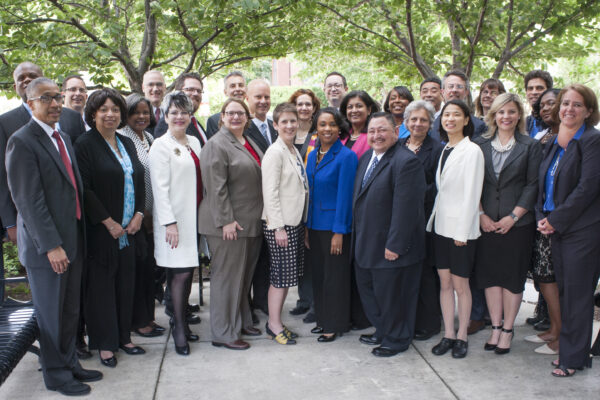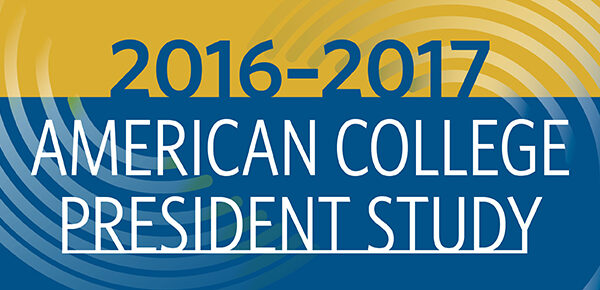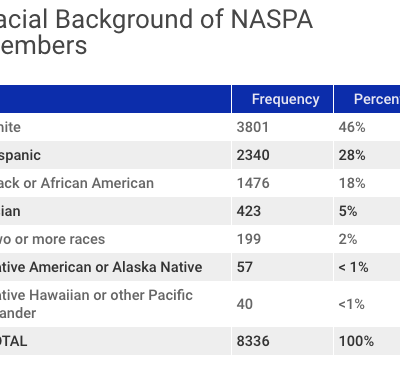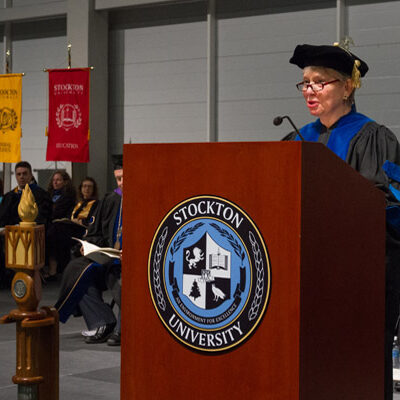Features
Q&A: Margaret Drugovich, New Chair of ACE Women’s Network Executive Council
Sook-Yi Yong, senior program manager for ACE Leadership, recently sat down with Hartwick College (NY) President Margaret L. Drugovich to talk about the most pressing issues facing higher education, her path to becoming a college president, and her plans for the ACE Women’s Network, a national system of networks within each state, Puerto Rico, and the District of Columbia that works to advance and support women in higher education.

ACE Fellows Program Opening Retreat: Mile High Management and Leadership in Action
Since 1965, more than 1,800 vice presidents, deans, department chairs, faculty, and other emerging leaders have participated in the ACE Fellows Program. Over the next nine months, ACE Leadership Vice President Lynn M. Gangone will bring an inside look to the program as the members of the 2016-17 cohort embark on a path to senior higher education leadership. First up, the opening retreat.

International Partnerships: What Does it Mean to be Strategic?
Strategic international partnerships are a hot topic in higher education right now. Collectively, we seem to be moving away from an initial philosophy of “let’s sign as many MOUs with foreign institutions as we can,” to an approach that emphasizes careful planning, deliberate action, and attention to quality, depth, and sustainability. Now that we’re headed down this path, however, the nuances of what we mean by “strategic” are increasingly important.
Deconstructing CBE: A Different Approach
As CBE gains broader popularity and acceptance, it is becoming increasingly important to understand certain subtleties about this approach to teaching and learning that extend beyond the basics. The first of three new studies on CBE just released by ACE, Ellucian and Eduventures looks at the diversity of practice that exists across a spectrum of schools that deploy CBE.

The American College President: Reflections and New Developments for ACE’s Signature Study
Earlier this year, ACE’s Center for Policy Research and Strategy distributed the survey for the eighth edition of the American College President Study (ACPS), which was first administered in 1986. Across three decades, the ACPS has earned a reputation as a one-of-a-kind research tool that presents a unique and comprehensive portrait of the presidency and the higher education leadership pipeline.

BRIDGE-ing Internationalization and Multicultural Education at Johnson & Wales University
In keeping with Johnson & Wales University’s mission of encouraging cross-cultural engagement to prepare students for the global workforce and civic life, JWU leaders undertook a strategic plan in 2012 that incorporated recommendations from ACE’s At Home in the World: initiative. Shelley Stephenson and Loren Intolubbe-Chmil discuss an innovative international program at an innovative institution.

“Am I overreacting?” Understanding and Combating Microaggressions
Many people of color, women, LGBTQ and other “minoritized” groups on college and university campuses experience microaggressions on a regular basis. We can no longer merely work toward multiculturalism and inclusivity, but rather we must address the larger systemic issues that allow racial microaggressions to flourish on campus.

Individual Acts of Inclusivity Have the Greatest Impact
There has been a great deal of energy expended on diversifying the faculty on college campuses in recent years, and the discussion has ramped up lately with the focus on student protests and demands for a more inclusive campus climate. ACE’s Kim Bobby discusses effective processes for building and retaining a diverse faculty—and how true inclusivity takes individual self-reflection and action.

Colombia: Peace, Equity, Education
With Colombia’s annual GDP growth of 4.8 percent between 2010 and 2014 and the final elements of the peace process falling into place, the dust of turmoil is settling—which will have an impact on higher education partnerships with the country. Heather Ward reports on her recent trip to Bogotá to assess how to strengthen collaboration between U.S. and Colombian institutions.

Affirming Racial Diversity: Student Affairs as a Change Agent
As we continue the discussion about race on college campuses, an important question is emerging: Are institutions of higher education the correct entities to task with addressing racial issues in the United States? Amelia Parnell of NASPA – Student Affairs Administrators in Higher Education looks at the role student affairs professionals can play in advocating for diversity on their campus.

Patti McGill Peterson Talks to Stockton Grads About Jobs and Dreams
Patti McGill Peterson, who has served for the past five years as presidential advisor for Global Initiatives at ACE, recently gave the commencement address at Stockton University in New Jersey. As she prepares to step down from her post at ACE, we would like to reprint her remarks to Stockton’s graduates, which focus on jobs—and dreams.

LGBTQ Talent and Institutional Success
Charles R. Middleton, president emeritus of Roosevelt University, writes that diversity and inclusion are essential to assuring long-term success for higher education institutions. And it is clear that we cannot achieve our maximum potential without taking advantage of the considerable talent and commitment to our institutions that LGBTQ employees, students, alumni and community leaders bring.